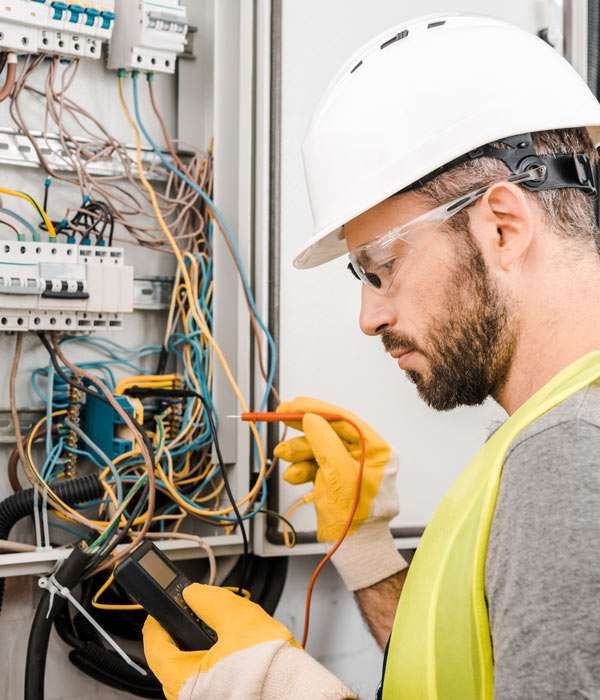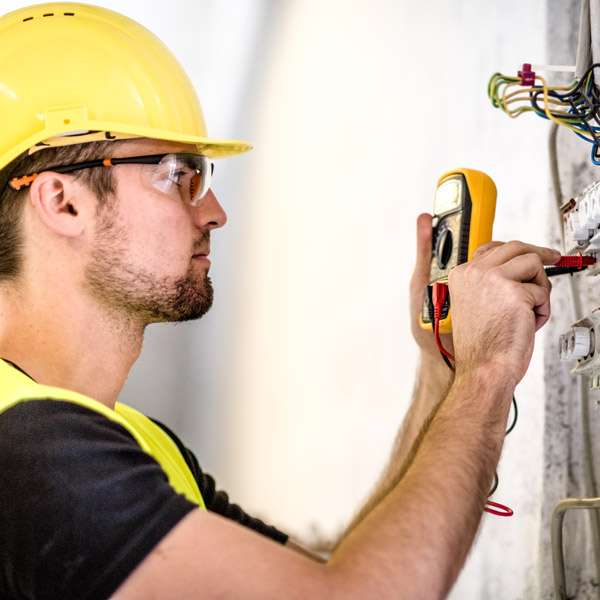EV Charger Installation in Troy, MI

Key Takeaways
- Hoover Electrical, Plumbing, Heating, and Cooling installs home EV chargers for customers in Troy, MI, and the surrounding areas.
- There are many benefits of having a home EV charger, including convenience, savings, increased property value, and more.
- It’s important to know which type of home EV charger you need to make sure you receive the correct one that’s compatible with your home and electric vehicle.
Why Choose Hoover Electric for EV Charger Installation?
If you own an electric vehicle in Troy, MI, it’s important to have access to quick charging whenever you need it. The professionals at Hoover Electrical, Plumbing, Heating, and Cooling provide expert EV charger installation services for your home. Whether it’s convenience, speed, or savings, these chargers offer a wide range of benefits when installed by an experienced electrician.

What Are the Benefits of Installing a Home EV Charger?
There are many benefits of getting a professional electric vehicle charger installation in your home. You can find more information about Hoover’s comprehensive electrical services here but let’s get into the perks of EV charging at home.
Convenience
When you have a home EV charger, it’s easy to charge your electric vehicle overnight, right in the safety of your garage. There’s no more standing at the gas pump or waiting in line to get gas in the morning before you head to work. Having your own EV charger at home makes keeping your electric vehicle charged easy and convenient.
Speed
The right type of home EV charger installation will charge your electric vehicle quickly. Level 2 chargers can charge your vehicle up to 10 times faster than a standard outlet. These chargers typically take just four to 10 hours to fully charge your EV from empty. This means your EV will be fully charged in no time, so you can head out the door and hit the road fast.
Savings
Electric vehicles are designed to save you money on gas. However, having a home EV charger offers you even more savings. You’ll get a much lower cost per mile when compared to using public charging stations, so you receive even more bang for your buck. You’ll also find extra discounts and specials at Hoover.
Property value
As the popularity of electric vehicles grows, more people throughout Michigan are making the switch. If you have a home EV charger, you’ll boost your home’s resale value and improve its appeal. Home EV readiness offers potential homebuyers an added feature that makes charging their electric vehicle easy and convenient.
Incentives
Aside from some federal incentives, the state of Michigan also offers energy rebates and tax credits for EV owners. Several utility companies throughout the state are now offering extra incentives for those who choose to receive a residential EV charger. Some of these incentives include a one-time rebate for installing an EV charger in your home.
What Type of EV Charger Do I Need?
It’s important to know what type of charger you need when you schedule an EV charger installation. Always hire an experienced residential EV charger installer to make sure everything is done safely and up to code.
Level 1 vs. Level 2 chargers — what’s the difference?
The biggest difference between Level 1 and Level 2 EV chargers is the voltage and charging speed. Level 1 chargers use a standard 120-volt outlet and tend to be slower than Level 2 chargers, which use a 240-volt outlet. A Level 1 charger adds approximately three to five miles of range per hour, while a Level 2 charger provides approximately 25 miles of range per hour. Most homeowners prefer Level 2 chargers due to their faster speed.
Hardwired vs. plug-in models
A hardwired EV charger is permanently installed and typically provides faster charging times than a plug-in model. However, the plug-in models are portable, easier to install, and less expensive. If you want reliability and fast charging, we highly recommend contacting the experts at Hoover to get a quote for a hardwired EV charger installation.
Compatible connectors
It’s also important to make sure that you have the correct connector that’s compatible with your specific electric vehicle make and model. The J1772 connector is considered a universal standard. The CCS connector lets you use the same port with Level 1, Level 2, and DC fast charging equipment.
Teslas often have a specific connector made just for its line of vehicles — the North American Charging Standard (NACS) connector is the name of Tesla’s proprietary charging port.
Futureproofing your home electrical setup
When you book a home EV charger installation, it’s a good idea to future-proof your home’s electrical setup. This futureproofing should include upgrading to a higher amperage circuit than you currently need, so it’s easier to adapt to changing technology in the future. It should also include installing conduit to make running more wire and installing upgrades in the future easier.
Can My Home Electrical System Handle an EV Charger?
Most modern homes have a 200-amp electrical panel. These panels have the capacity to handle a Level 2 EV charger, which is the most common option for home use. However, if you have an older home with a 100-amp panel, you may need to upgrade it to accommodate the EV charger.
What’s the Installation Process Like?
Here’s a quick guide so you know what to expect during the home EV charger installation process.
- Step one: We’ll evaluate your electrical system and needs to determine which type of charger and connector is best for you, and provide a free estimate.
- Step two: A skilled electrician will mount the charger to the garage or exterior wall and install a dedicated circuit if needed.
- Step three: The electrician makes sure that all electrical connections are safely installed and everything is properly grounded.
- Step four: Your new EV charger is thoroughly tested to confirm that it’s working correctly and safely.
Service Areas: We Proudly Serve Troy, MI, and Nearby Communities
Hoover Electric provides professional EV charger installation across Troy and surrounding areas, including:
- Troy, MI: 48007, 48083, 48084, 48085, 48098, 48099
- Birmingham, MI: 48009
- Sterling Heights, MI: 48310, 48312, 48313
- Rochester Hills, MI: 48306, 48307, 48309
- Clawson, MI: 48017

Frequently Asked Questions
The cost to install an EV charger in your garage varies based on the type of charger you receive and whether any electrical upgrades are needed. On average, it costs from approximately $799 to $2,000 to install a new home EV charger.
Yes, it’s always recommended to hire a licensed electrician to install a home EV charger, especially if you’re installing a Level 2 charger. A professional electrician knows how to safely install and test the dedicated circuit so it complies with the National Electrical Code (NEC).
An electrical permit is typically required for a residential EV charger installation. This is because any new wiring or other electrical upgrades must comply with local building codes and national electrical codes. If significant modifications are needed, a building permit may also be required.
Ready to Charge Smarter? Book Your EV Charger Installation with Hoover Today!
If you’re ready to charge your EV smarter, the team at Hoover Electrical, Plumbing, Heating, and Cooling has you covered. We’re proud to serve our customers in Troy, MI, and beyond, and financing options are available for some services. If you’d like to get a home charger, contact us to install your new EV charger today!

